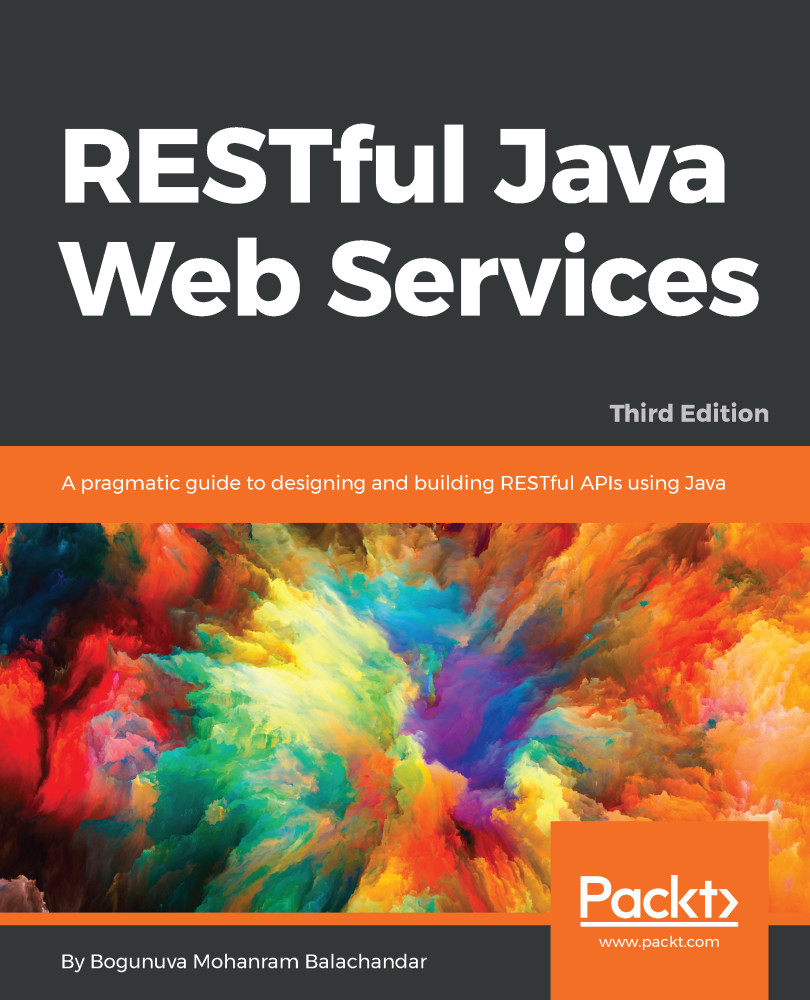In the previous chapter, you were introduced to the REST architectural style. Remember that REST does not prescribe any specific message format for client-server communication. One can use an appropriate format for representing messages as long as the chosen format is supported by HTTP. XML and JSON are the two popular formats used by RESTful web services today. Within these two formats, JSON is widely adopted by many vendors because of its simplicity and light weight. In this chapter, you will learn more about the JSON message format, how to represent real-life business data in the JSON format, and various processing tools and frameworks related to JSON.
The following topics are covered in this chapter:
- A brief overview of JSON
- Using the JSR 353 – Java API for processing JSON
- Using the Jackson API for processing JSON
- Using the Gson API for...


